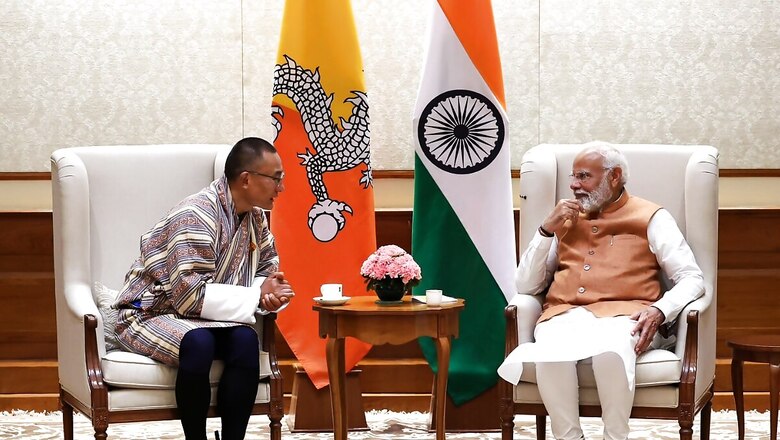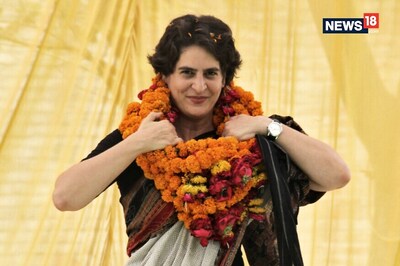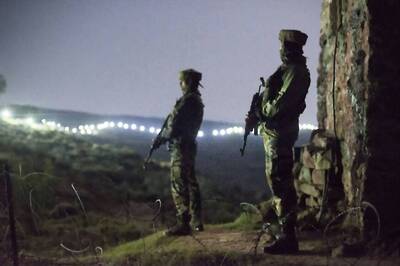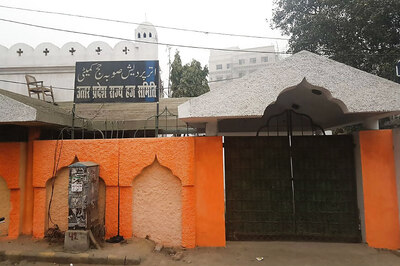
views
Prime Minister Narendra Modi on Thursday held “productive” talks with his Bhutanese counterpart Tshering Tobgay focusing on various aspects of a “unique and special partnership” between India and Bhutan.
After his talks with Tobgay, Modi said he conveyed “heartfelt thanks” to the Bhutanese King and the prime minister for inviting him to visit Bhutan next week.
The talks took place hours after Tobgay arrived here on a five-day visit to India, his first foreign trip after assuming charge of the top office in January.
“Glad to meet my friend and PM of Bhutan @tsheringtobgay on his first overseas visit in this term. Had productive discussions encompassing various aspects of our unique and special partnership. I convey heartfelt thanks to His Majesty the King of Bhutan and @PMBhutan for inviting me to visit Bhutan next week,” Modi posted on X.
Officials said Modi and Tobgay carried out a comprehensive review of the overall ties between the two countries.
In a statement, the Ministry of External Affairs (MEA) on Wednesday said Tobgay’s visit will provide an opportunity for the two sides to review the progress in the “unique partnership” and to discuss ways to expand the “enduring” ties of friendship and cooperation between India and Bhutan.
Tobgay’s visit to India came against the backdrop of China and Bhutan looking at an expeditious resolution of their festering boundary row that could have implications for India’s security interests.
It is not immediately known whether the boundary issue figured in the talks on Thursday.
Around five months ago, Bhutan’s then-foreign minister Tandi Dorji held talks with his Chinese counterpart Wang Yi in Beijing.
A Chinese readout on the talks said Bhutan firmly abides by the one-China principle and stands ready to work with China for an early settlement of the boundary issue and advance the political process of establishing diplomatic relations.
New Delhi has been keeping a close eye on the negotiations between Bhutan and China on their boundary row as it could have implications for New Delhi’s security interests, especially in the Doklam tri-junction.
Last August, China and Bhutan agreed to expedite and take simultaneous steps to implement a “three-step roadmap to resolve their festering boundary dispute.
In October 2021, Bhutan and China signed an agreement on the “three-step roadmap” to expedite negotiations to resolve their boundary dispute.
The signing of the pact came four years after the Indian and Chinese armies were locked in a 73-day stand-off at the Doklam tri-junction after China tried to extend a road in the area that Bhutan claimed belonged to it.
The India-China stand-off in the Doklam plateau in 2017 even triggered fears of larger conflict between the two neighbours. Bhutan had said the area belonged to it and India supported the Bhutanese claim.




















Comments
0 comment